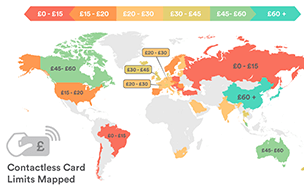The coronavirus pandemic was a traumatic event on a global scale, having caused incalculable damage to national economies and services. The effect of the pandemic is still being felt keenly today, in the EU and around the world. A recent report (State of Health in the EU – Companion Report 2021) revealed that almost all European countries have had an important mortality impact.
Like any other healthcare system, the NHS (the British health care system), was naturally at the frontline of the pandemic, shouldering the burden of increased cases and casualties. The after-effects of this burden are impacting the service and its users to this day – but in what ways? How private healthcare could become the norm in Europe ?
Longer Waiting Times
The coronavirus pandemic naturally taxed hospitals across the country, as wards continued to fill – in some cases, beyond capacity – with Covid patients. The knock-on effect was catastrophic for access to healthcare, which has been felt most keenly by the public in terms of waiting times.
Accident and emergency waiting time increases have been well-reported, but the more profound impact of coronavirus prevalence on the NHS can be seen in waiting times for ‘elective’ operations – meaning non-emergency interventions that improve quality of life such as hip replacement surgery.
According to recent figures provided by the BMA, the number of people on the waiting list for elective care has skyrocketed to 6.5 million over the course of the pandemic, with some facing a wait of over a year to receive treatment.
Demand for Private Care Higher
The growth in wait times across the board has inspired a sympathetic increase in demand for private care. Many are choosing to shoulder the cost of private healthcare to alleviate their condition or symptoms. However, while those who have suffered a personal injury are potentially able to recoup costs through compensation claims, many do not have the requisite funds to afford such care.
Private healthcare is a tender subject for the UK, with support for the NHS remaining high amongst the adult population in spite of growing issues with patient-side healthcare. Even the Government has committed to using private healthcare entities to lighten the load on the NHS, but face an uphill battle when it comes to offering administrative support.
Staffing Issues
That uphill battle comes as a result of waning staff numbers. Persistent shortages and unequal geographic distribution of health workers/services have impacted several European countries. In the UK, over a decade of underfunding, capped off by a once-in-a-lifetime national medical event, has made the NHS a stressful working environment for newer members of staff, seeing many abandon the career path altogether. Those that remain, or those graduating from medical schools, are generally choosing private healthcare.
For all the negative press about the state of the health care systems around the world and problems with frontline care, there are positives to take away. The nations are more united behind their healthcare workers than ever before, and internal measures are showing a stronger commitment to looking after staff mental health.
Finally, significant changes in how health healthcare services are delivered have been triggered by the pandemic. In turn, this led to digital innovation in healthcare delivery and public health. In the long term, digital health technologies could be beneficial to boosting public health measures in the EU and across the world.



























